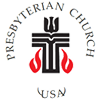Last Sunday we gathered. We prayed. We began checking in with each other. Talking about what we found to the be hardest for us from the “list” we could hear as we read Romans 12:1,9-13. One person named that they felt they had no zeal nor spiritual fervor (which by the way interestingly enough was immediately challenged by another sitting at the table!), while another after hearing many speak shared that they must be surrounded by a bunch of saints (hehehe) since they found the hating what is evil & holding to what is good to be rather challenging.
Yet most of our time centered around hospitality. Hospitality and sincere/genuine love. There was this understanding of how we might be able to offer the actions involved with hospitality while our hearts might not be sincere. Also, there were questions to about what exactly hospitality is? Does it look the same always? Is there only one way to possibly offer hospitality? Is hospitality offered differently when we are thinking of individuals (or a family) as compared with a church? In all the ideas of hospitality discussed there was a commitment to centering the other person, to making space for them in the midst of our (busy) lives. Hospitality seems to include an element of recognizing someone else (perhaps at great cost & (mild) frustration to us) as a priority. Part of the conversation mentioned more than once was the idea/practice of “fake it ’til you make it” the concept of doing the hospitality until your heart does become sincere…this is something that has worked for some well in the past but which is challenging to others. I wonder if in a very real sense though this is part of our walk with God? That as we learn to (and live into) love there is this element of faking it until we make it — this sense of trusting God along the way until we get it (a little more!) and by that I might mean that God can love through us a little better (or that we don’t get in God’s way of loving through us so much!)
We could have stopped here, observing the invitation to offer hospitality and seeing how it is a challenging growth point for us….I wonder how the Holy Spirit might be wanting us all to grow in hospitality? As individuals as well as a church? Isn’t it great we have our annual brunch this weekend? But we continued with scripture, Romans 12:1-2:
12 I appeal to you therefore, brothers and sisters,[a] by the mercies of God, to present your bodies as a living sacrifice, holy and acceptable to God, which is your spiritual[b] worship. 2 Do not be conformed to this world,[c] but be transformed by the renewing of your minds, so that you may discern what is the will of God—what is good and acceptable and perfect.[d]
We focused on verse 2. And asked some questions like…What does it mean to NOT be conformed to this world? What does it mean to have a transformed mind? And can we know (discern) the will of God? (A specific (to us) will of God?, a general (for all) will of God?) Some started the conversation of how the world has different expectations than God, how most have worked “in the world” and that perhaps was a challenge. So the homework for this week and next stems from this idea of non-conformity & transformation as we try to figure out how exactly do we live verse 2? And in living verse 2, what exactly is the point of discerning what is “good and acceptable and perfect” if we know what the will of God is?
I can’t wait to hear what will be shared when we gather round the table next (on 9/16)!
In Christ ~
Rev. Sabrina Slater
